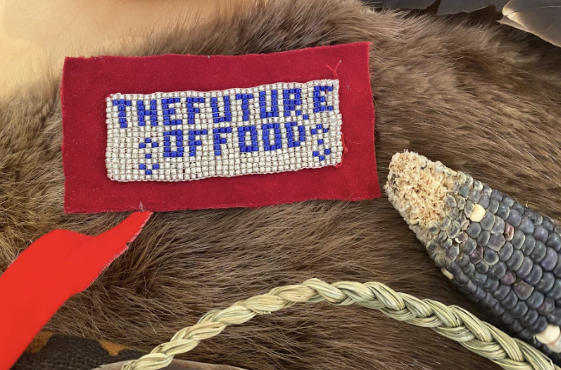Strategy
Organizations of all kinds require robust strategies to grapple with the complex, uncertain world. Our Strategy Practice can help you align people and resources to achieve maximum impact, and in a way that responds to emergent change.
An illustrative selection of our work in Strategy is provided below. Reach out to learn more about the hundreds of other projects we've supported.
Kingston Food Systems Plan
Building resilience and equity in a historic Hudson Valley community.
The City of Kingston, part of New York City's Hudson Valley food shed, faces multiple concurrent food system challenges despite its rich agricultural heritage and vibrant farm-to-table culture.
We facilitated a comprehensive and collaborative planning process that included extensive stakeholder engagement with impacted but underrepresented populations through town halls, workshops, surveys, and community events to map and analyze the city's food system. Our systems approach identified key leverage points while building on existing strengths of the City and community partners. The work produced a detailed Food Systems Plan with recommended roles for key players, complementary City planning approaches, and specific priorities to strengthen resilience, address food insecurity, and increase access to nutritionally dense foods.
Human-Centered Design Toolkit for Nutrition Sensitive Social Protection
Building tools to transform policy design.
Social protection systems have immense potential to transform lives, and there are exciting opportunities to make them even more effective through deeper engagement with beneficiaries. We worked with GAIN to develop a context-adaptable Human-Centered Design toolkit that guides social protection policymakers and program delivery actors to identify critical moments when they should listen to and co-create with beneficiaries.
The toolkit challenges the traditional 'build it and they will come' mindset by enabling policymakers to design interventions that truly meet end-user needs while remaining viable for implementation. Our work included developing context-adaptability guidelines that allow local actors to tailor the tools to their specific social protection systems.
Photo Credit: Sandy Millar
Last-Mile Delivery of Agricultural Inputs
Strengthening village-based advisory systems across Sub-Saharan Africa.
While infrastructure across Sub-Saharan Africa is improving rapidly, gaps in last-mile delivery services for agricultural inputs persist, leaving smallholder farmers without timely access to critical resources. The Food Systems Foresight team conducted an assessment of AGRA-supported Village-based Advisor (VBA) and Agro-dealer business models in 4 countries: Burkina Faso, Mozambique, Nigeria, and Tanzania, to increase the financial sustainability of these trusted intermediaries between distributors and farming communities.
We leveraged the popular ‘Business Model Canvas’ framework and customized it based on stakeholder input. Our team adopted a human-centred and food systems approach to capture diverse contexts and examine the wide network of formal and informal actors that last-mile delivery relies on. The assessment produced bespoke recommendations to help VBAs, agro-dealers, AGRA, and partners refine their business models for long-term sustainability and improved service to smallholder farmers.
Photo Credit: M Abnodey
Human Centered Design Sprint
Malnutrition is a crucial issue in Nigeria: in the context of rapid growth, 5 of the top 10 risk factors driving disability and death relate to diet. Each point to critical challenges facing the country’s food systems.
Through our systems practice, we facilitated a week-long Human Centered Design Sprint for the Global Alliance for Improved Nutrition (GAIN)’s EatSafe project, funded by the United States Agency for International Development (USAID). EatSafe aims to empower consumers and vendors to make safer food choices in traditional markets. With over 30 food safety and behavior change experts from around the world, our Sprint involved brainstorming, prototyping, and iterative testing to bring about 4 unique innovations designed to encourage safer food markets in Kebbi State.
Legacy Investment Look Back
Making sense of past work and building foundations for future action.
In the decade of action required to achieve the Sustainable Development Goals (SDGs), Canada’s International Development Research Center (IDRC) will build on past investments and momentum through continued investments in food systems research under their newly-launched Climate-Resilient Food Systems Program (CRFS).
We analyzed past IDRC programs in climate change and food systems to capture and crystallize insights related to the new strategic focus of CRFS. Our report integrated insights and lessons into a unified narrative, which IDRC used to build future programming and frame pertinent themes of emergent organizational norming.
New Market Entry for Improved Seed
Bringing affordable and improved inputs to Africa’s smallholders.
African farms report the world's lowest yields; often this is due to poor inputs. We worked with a global input provider to develop a market entry strategy in two southern African countries. Through extensive market research and stakeholder interviews, we identified the pertinent dynamics of local and international markets and advised on market models for maximum impact.
Our in-depth analysis included extensive research into potential partners and allowed the company to follow a well-vetted roadmap for market entry and expansion of their sales, increasing the availability of plant-based protein in the region.
Philanthropic Portfolio Review
Reflecting on impact and investment outcomes.
Grants, even with the best intentions, can have varied impact. To inform it’s forward-looking strategy, a leading corporate foundation asked us to evaluate their $25M portfolio of investments in smallholder farmer development programming.
Our work highlighted trends in the portfolio, noting areas of high impact and areas of lackluster performance. Upon analysis of the underlying investment processes for each investment, we identified opportunities to streamline investment selection and increase alignment with strategy going forward.






